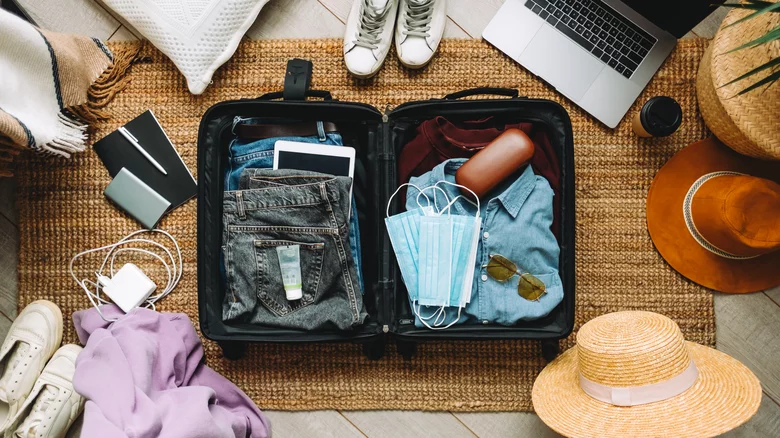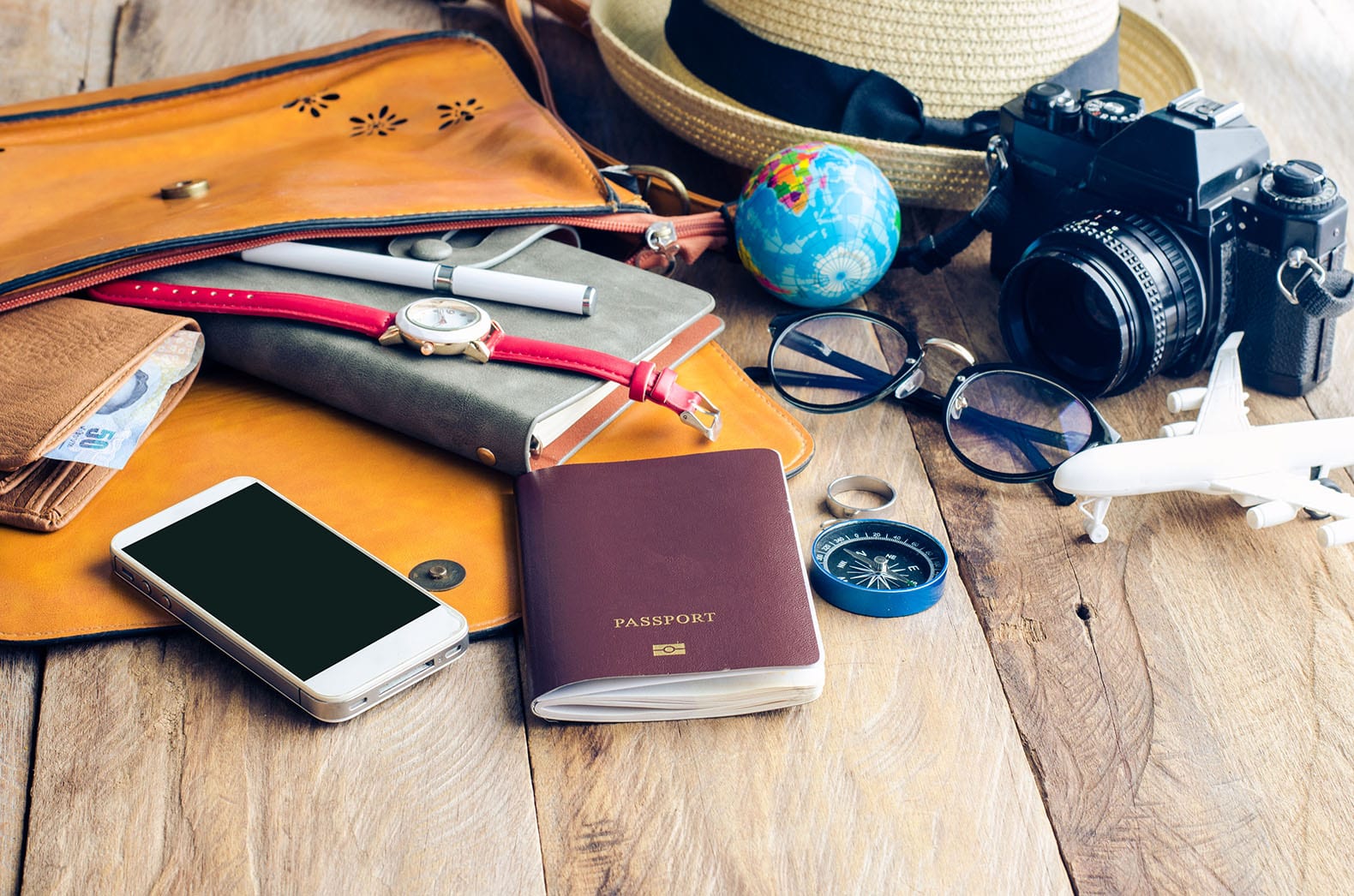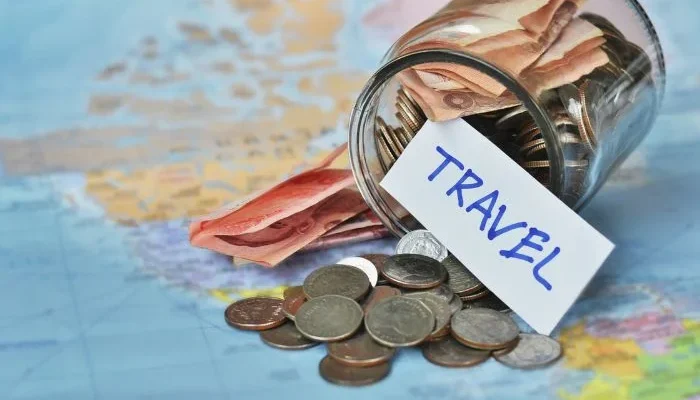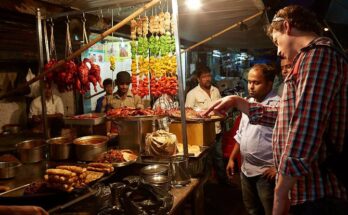Traveling is an enriching experience that allows us to explore new cultures, cuisines, and landscapes. However, it can also be costly, especially if you don’t plan carefully. The good news is that with some strategic planning and smart choices, you can enjoy incredible adventures without breaking the bank. In this comprehensive guide to budget travel, we’ll provide you with a detailed set of tips and tricks to help you save money on your next adventure.
1. Plan Ahead and Set a Budget

The foundation of any successful budget travel endeavor is thorough planning and setting a realistic budget. Begin by determining the total amount you’re comfortable allocating to your trip. Next, break down your budget into specific categories such as accommodation, transportation, food, activities, and miscellaneous expenses. Research the average costs in your chosen destination to ensure your budget aligns with your travel goals.
2. Be Flexible with Your Travel Dates
Flexibility is a powerful tool in the hands of budget-conscious travelers. If your schedule allows, be open to adjusting your travel dates. This flexibility can enable you to take advantage of off-peak seasons when airfare and accommodation prices tend to be lower. Utilize fare comparison tools and consider flying on weekdays or during non-holiday periods to secure the best deals.
3. Opt for Budget Accommodations
Opting for budget accommodations is a savvy move for travelers looking to maximize their experiences without overspending. While luxury hotels offer opulence, they often come with a hefty price tag. Instead, consider exploring alternative lodging options that cater to budget-conscious individuals. Hostels, guesthouses, vacation rentals, and even camping (if suitable for your destination) can provide comfortable and affordable stays. These options not only save you money but also offer unique opportunities to connect with fellow travelers and experience the local culture in a more intimate setting. By choosing budget accommodations, you free up resources for other enriching aspects of your journey.
4. Use Public Transportation

Renting a car or relying on taxis can quickly deplete your budget. Instead, make the most of public transportation options like buses, trams, and subways whenever possible. Many cities also offer affordable multi-day passes that allow for unlimited travel on public transit systems. Not only does this save you money, but it also provides an opportunity to experience a destination like a local.
5. Embrace Street Food and Local Eateries

One of the most enjoyable ways to immerse yourself in a new culture is through its cuisine, and street food is often the most authentic and budget-friendly option. Seek out local markets and street vendors for delicious, affordable meals. Additionally, opt for small, family-owned restaurants over touristy establishments for a more genuine and wallet-friendly dining experience.
6. Avoid Tourist Traps
While iconic tourist spots have their charm, they often come with inflated prices and crowds. To save money and have a more authentic experience, explore lesser-known areas and seek out hidden gems. These spots can offer equally enriching experiences without the hefty price tag. Consider using travel forums, blogs, and local recommendations to discover these hidden treasures.
7. Pack Wisely

Packing efficiently is not only a practical consideration but also a way to save money on baggage fees and prevent the need for unnecessary purchases during your trip. Make a comprehensive checklist of essentials, versatile clothing, and any specialized items you may need for your activities. Don’t forget to pack reusable items like water bottles and shopping bags to reduce unnecessary expenses and minimize your environmental impact.
8. Take Advantage of Free Activities
Many destinations offer a wealth of free or low-cost activities that allow you to explore and experience the local culture without spending a dime. Look for parks, museums with free admission days, walking tours, and cultural festivals. Check local event listings and websites for up-to-date information on events and activities that align with your interests.
9. Consider Travel Insurance
While it may seem like an added expense, travel insurance can actually save you money in the long run by providing coverage for unexpected events like trip cancellations, medical emergencies, and lost luggage. Compare policies to find one that fits your needs and budget. It’s a small investment that can offer significant peace of mind throughout your journey.
10. Monitor Your Spending
Throughout your trip, it’s crucial to keep track of your expenses to ensure you stay within your budget. Utilize mobile apps or keep a travel journal to record your spending and compare it to your initial budget. This practice will help you identify any areas where you may need to adjust your spending habits, allowing you to make informed decisions and stay on track financially.
Essential items to bring on a budget friendly trip.

When embarking on a budget travel adventure, it’s important to pack wisely to ensure you have what you need without overpacking. Here are some essential items to carry on a budget trip:
Travel Documents:
Passport and visa (if required).
Identification, like a driver’s license.
Travel insurance documents.
Printed or digital copies of your itinerary and reservations.
Money and Payment Methods:
Cash in the local currency and small denominations.
Debit/credit cards with low foreign transaction fees.
A money belt or hidden pouch for keeping your valuables secure.
Backpack or Luggage:
Choose a lightweight, versatile backpack or suitcase.
Consider a daypack for day trips and excursions.
Clothing:
Weather-appropriate clothing for your destination.
A few versatile, mix-and-match pieces to minimize clothing items.
Comfortable walking shoes and flip-flops for relaxation.
Laundry supplies, like a travel-sized detergent or laundry bags.
Travel Accessories:
Travel-sized toiletries (shampoo, soap, toothbrush, etc.).
Microfiber towel (quick-drying and space-saving).
Universal adapter and voltage converter.
Earplugs and sleep mask for better rest in different environments.
Health and Medications:
Prescription medications.
Basic first-aid kit with items like band-aids and pain relievers.
Insect repellent and sunscreen.
Electronics:
Smartphone, charger, and power bank.
Camera or smartphone for capturing memories.
Headphones for entertainment during travel.
Travel Guide and Maps:
A guidebook or digital travel app.
Maps or a GPS device for navigation.
Water Bottle and Snacks:
Refillable water bottle to save on buying bottled water.
Non-perishable snacks for on-the-go sustenance.
Locks and Security:
Padlocks for securing your luggage and hostel lockers.
Cable lock for securing bags on trains or buses.
Entertainment and Comfort:
Travel pillow for more comfortable journeys.
Entertainment like books, e-books, or games for downtime.
Important Contacts:
A list of emergency contacts, including embassy details.
Local emergency numbers for your destination.
Reusable Bags:
Foldable, reusable shopping bags for groceries and souvenirs.
Sustainability Items:
Reusable utensils and a cloth napkin to reduce waste.
Sustainable toiletry options like a bamboo toothbrush.
Language Tools:
Basic phrases in the local language or a translation app.
Remember to pack as light as possible, as it makes it easier to move around and reduces the risk of excess baggage fees. Tailor your packing list to the specific needs of your trip and destination, and be sure to leave room for any items you may pick up along the way.
Budget travel offers several important benefits
Affordability: It allows individuals to explore new places and cultures without straining their finances. This makes travel more accessible to a wider range of people.
Extended Travel Duration: By managing expenses carefully, budget travelers can often extend their trips or take more frequent vacations compared to those who spend lavishly on each journey.
Cultural Immersion: Staying within a budget often necessitates interacting more with locals, trying local foods, and participating in activities that are more authentic to the destination. This leads to a deeper cultural experience.
Independence and Flexibility: Budget travelers are often more independent and flexible in their plans. They have the freedom to adjust their itinerary based on their preferences or unexpected opportunities.
Resourcefulness and Problem-Solving Skills: Navigating on a budget requires creativity and resourcefulness. It encourages travelers to find alternative solutions and think outside the box.
Sustainable Tourism: Being mindful of expenses often leads to more sustainable travel practices. For instance, walking or using public transportation instead of private taxis can have a positive environmental impact.
Memorable Experiences: Focusing on budget travel encourages travelers to seek out unique and off-the-beaten-path experiences, creating lasting memories that may not be found in more mainstream tourist activities.
Financial Discipline: Learning to manage expenses during travel can translate to better financial habits in everyday life, fostering discipline and responsible spending.
Reduced Financial Stress: By planning ahead and sticking to a budget, travelers can avoid the stress that can come with overspending or unexpected expenses during their journey.
Encourages Travel Planning and Research: Budget travel requires more thorough research and planning, which can lead to a deeper understanding of the destination, its culture, and its attractions.
Overall, budget travel not only allows individuals to see the world without a hefty price tag, but it also promotes a more immersive, sustainable, and enriching travel experience.
In conclusion, budget travel is not about sacrificing quality or missing out on amazing experiences. It’s about making smart choices and finding cost-effective alternatives that allow you to make the most of your adventures without breaking the bank. By following these tips, you’ll be well-equipped to create unforgettable memories while keeping your finances in check. Happy travels!
FAQs
1: How can I find budget friendly accommodations without compromising comfort and safety?
Answer: There are several options for budget accommodations that offer both comfort and safety. Consider staying in hostels, guesthouses, vacation rentals, or exploring camping options if suitable for your destination. Additionally, platforms like Airbnb and Booking.com offer a wide range of budget-friendly options. Reading reviews and doing thorough research can help you make an informed choice.
2: How can I save money on transportation during my travels?
Answer: To save money on transportation, use public options like buses, trams, and subways whenever possible. Many cities offer cost-effective multi-day passes for unlimited access to public transit systems. Additionally, consider walking or using bicycles for shorter distances, and explore ride-sharing options if they are more economical than taxis.
3: Is it safe to eat street food while traveling on a budget?
Answer: Yes, street food can be a delicious and safe option for budget-conscious travelers. To ensure hygiene, look for vendors with a high turnover of customers and clean cooking practices. Pay attention to how the food is prepared and cooked. Also, consider trying local markets and small, family-owned restaurants for authentic and affordable dining experiences.
4: How can I avoid overspending while exploring popular tourist destinations?
Answer: To avoid overspending in popular tourist spots, consider exploring lesser-known areas and hidden gems. These places often offer equally enriching experiences without the crowds and inflated prices. Utilize travel forums, blogs, and local recommendations to discover these hidden treasures and gain a more authentic understanding of the destination.
5: Is travel insurance really necessary for budget travel?
Answer: Yes, travel insurance is important for budget travelers as it provides coverage for unexpected events like trip cancellations, medical emergencies, and lost luggage. While it may seem like an additional expense, it can save you money in the long run by offering financial protection and peace of mind throughout your journey.
6: How can I effectively monitor my spending while on a budget trip?
Answer: To monitor your spending, use mobile apps or keep a travel journal to record all expenses. Categorize them into accommodation, transportation, food, activities, and miscellaneous costs. Compare your actual spending to your initial budget regularly and adjust your expenses as needed. This practice will help you stay within your budget and make informed financial decisions during your travels.


